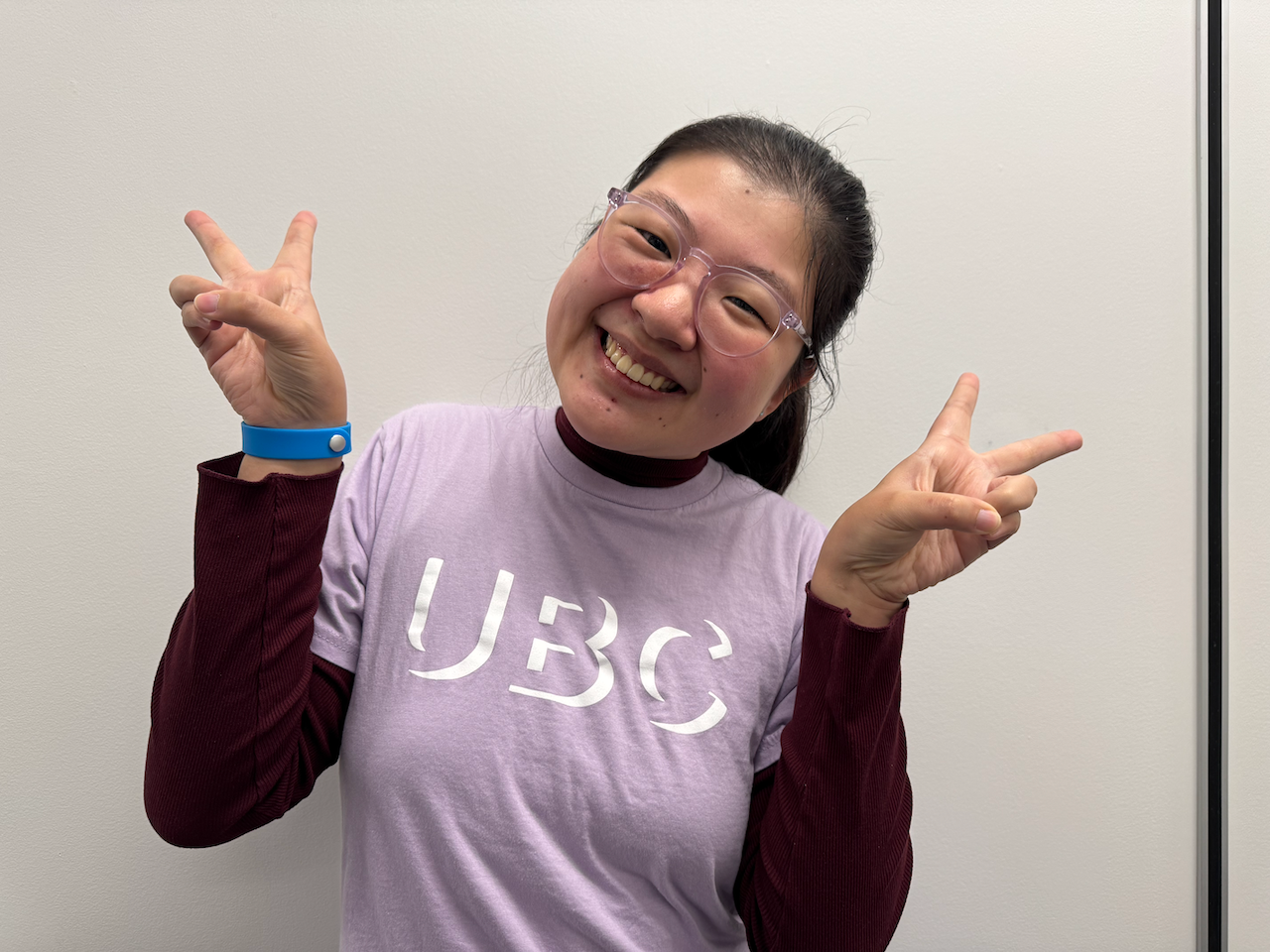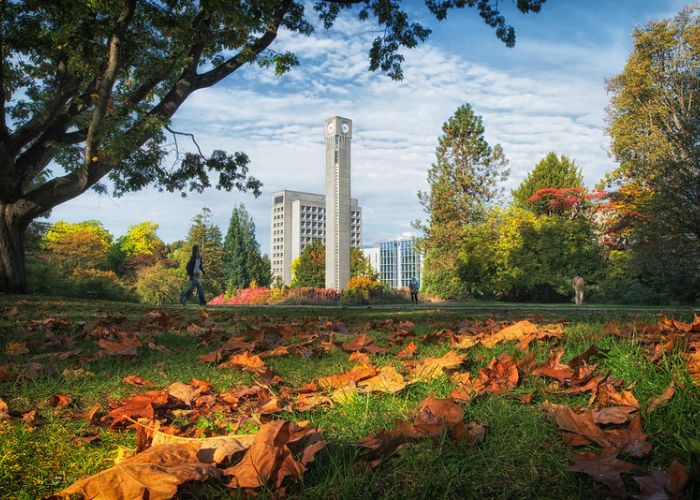
Since graduation, UBC German Studies alum Dawn Zhao has taken up German to Chinese translation for her favourite actress Annemieke van Dam. She shared her story recently with Dr. Elizabeth “Biz” Nijdam, the program’s Director of Undergraduate Studies.
Q: What inspired you to study German in the first place? And what aspects of the UBC German program did you find most valuable or rewarding?
A: I actually started learning German in high school, because all twelfth-year students were required to take a second foreign language. I was randomly assigned to German. So, I always say, “I didn’t choose German, German chose me.” Then one year after my high school, my friend told me they were signing up for some language courses as second-year electives, and I thought, maybe it’s also time for me to come back to German!
The best and most valuable part of the UBC German program to me, is how much the professors care about their students, and how many wonderful and diverse activities there are in the department. My first two semesters of learning German at UBC actually happened in the pandemic year, and everything was online. But even then, I noticed that my instructors, Prof. O’Brien and Prof. Hempen, didn’t just come to give a lecture, they came to know us students. The next year, when things started going back in person, I attended some events, got to know more wonderful professors and students, and loved how the whole atmosphere there felt like home. This inspired me to sign up for even more German courses, which eventually led me to where I am today.
Q: What motivated you to start doing German-Chinese translation in your free time? And what kind of texts or projects have you been working on so far?
A: Translation has always been one of my biggest hobbies. I even started doing some English-Chinese translations in my free time in high school. So, after learning German for a few years, it just felt so natural for me to start translating something from German.
By far I have worked on many different translation formats. I have worked on fan-fictions, magazine articles, interviews, lyrics, and musical scripts before, for both German-Chinese and English-Chinese. Right now, I am working with my favorite musical actress, Annemieke van Dam, to add Chinese subtitles to her vlogs before she posts them to Chinese platforms like Rednotes and Bilibili. I have finished 53 of them by far and I enjoy working on them a lot!
Q: German and Chinese are quite different linguistically and culturally. What are some of the biggest challenges you face when translating between them?
A: Punchlines and slangs! What makes it even more interesting is, that she is actually Dutch, not German or Austrian. Sometimes she would say a Dutch slang in German, and of course I wouldn’t understand, neither would my German friends do. In these cases, I ask her directly what she meant, and she explains it to me.
But sometimes even when I get it, I had to translate them in a way the Chinese audiences would also understand, and that can be tricky because some words just don’t have an equivalence. It’s a bit frustrating at the beginning when I just couldn’t find the answer, but after all it’s fun, and I have learned something new from this.
Q: Are there any cultural nuances that you’ve found particularly difficult to convey in translation?
A: Most of the time, cultural nuances aren’t a major issue because her vlogs focus on theater, which is fairly similar across cultures. But sometimes there are some small details that is hard to convey perfectly. Because I have lived in Canada for several years and travelled multiple times to Europe, I have the privilege to understand some cultural nuances easily. But when I translate them into Chinese, it would confuse some Chinese audiences.
She has made a vlog about job and family, saying that she missed her son’s kindergarten graduation ceremony because she had a very important performance that day, and she cried during the vlog. But a lot of her Chinese audiences found it hard to resonate, and didn’t understand why this was such a devastating thing for her, because kindergartens in China were never considered as a “milestone” for a child, and parents don’t usually celebrate that.
Q: Do you see this translation work as a potential future career, or is it more of a personal passion project?
A: It’s more of a personal passion, but a long-term one. My biggest interest has been biology ever since I was 12. I did my undergrad degree majored in applied biology and I want that to be my future career. But that doesn’t mean I’m not taking German or translation seriously, I want it to be a hobby that lasts for years or even decades, but not a career. I’m always looking forward to doing more translations and German-related things, and keeping it as a big part of my life, just in my causal time.
Q: What advice would you give to students who are considering learning German or pursuing translation work?
A: My advice for students learning German is, that classes are important, but they are not the only source for your learning. Try and find opportunities outside of classroom where you can learn things or practice what you have learned in class, for example, the UBC Plauder-Treff! I have been participating in them for 2 years even after my graduation, everyone there is super nice and patience. They really help me improving my spoken German and give me more confidence.
For translation, my advice is don’t be afraid to make mistakes. It is barely possible to convey a message with 100% accuracy, and mistakes happen all the time. Maybe because you misread a word, maybe because the original text is ambiguous itself, or maybe because there are some words that just can’t be translated perfectly, and that’s normal. Sometimes when you re-watch or re-read something you translated before, you will think “I should have done this better.” But don’t let it discourage you, because you learn from it, and you will do better when you see similar words the next time.
Q: Lastly, what’s next for you? Do you have any plans to continue developing your translation skills or explore other opportunities related to the German language?
A: Of course I will continue doing these! Right now, because of my work and my busy life, I don’t really have a concrete plan on actively “developing” or “improving” my skills, but I will keep doing things that I have found helpful, like the weekly German event at UBC, like doing this translation project, like listening to German radios during commute. I’m also planning to read a book like I did last year, and I already bought the German version of Rebecca (by Daphne du Maurier), but I kept procrastinating on actually reading it… I will start one day!
You can listen to Annemieke van Dam music here and find links to Dawn’s translation work here and here.


